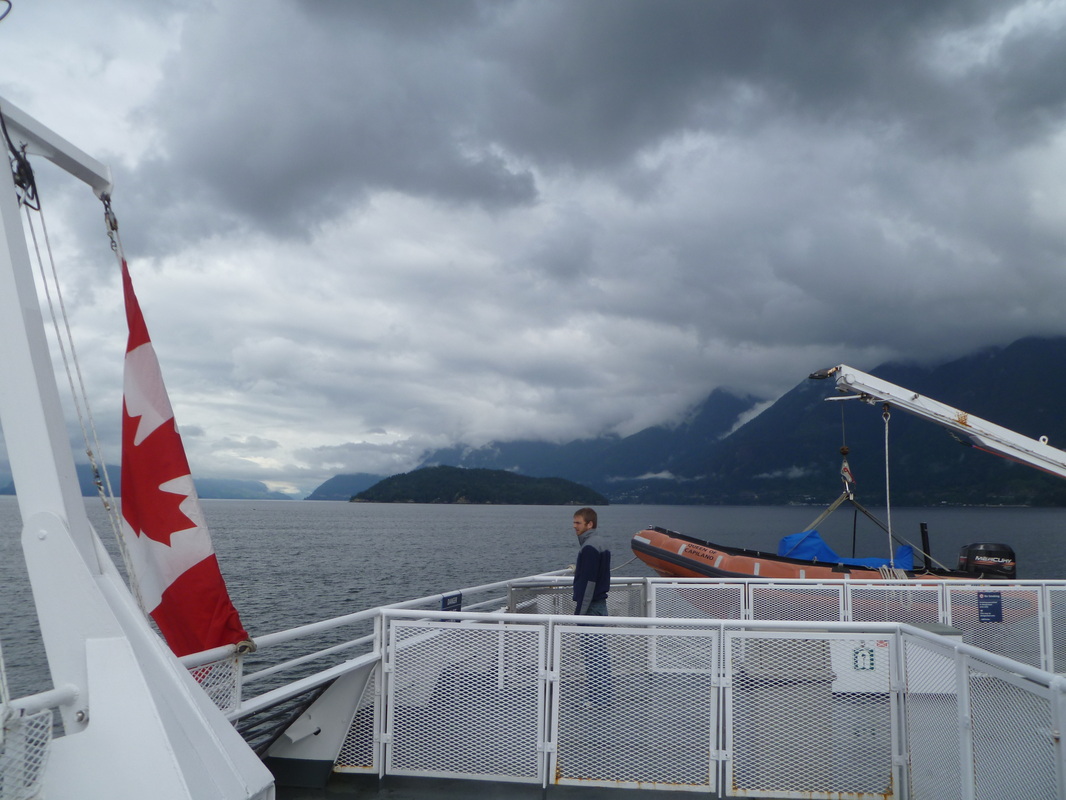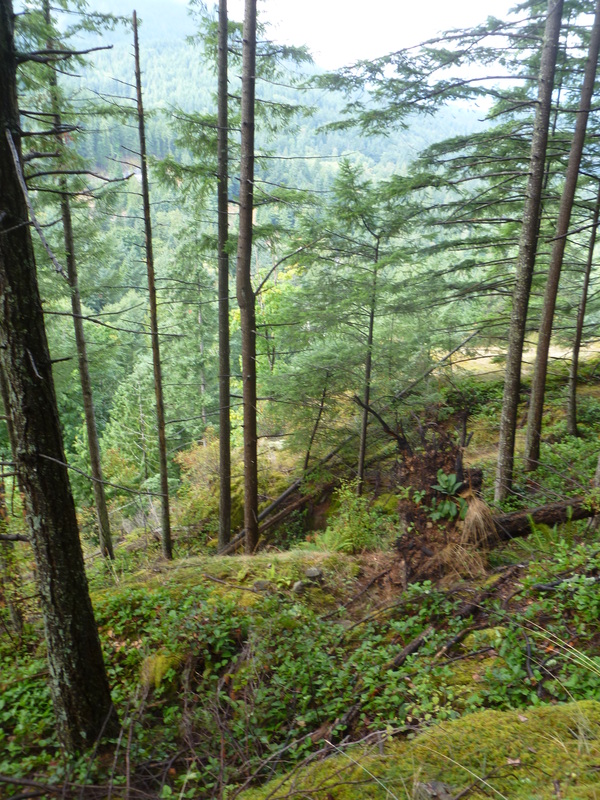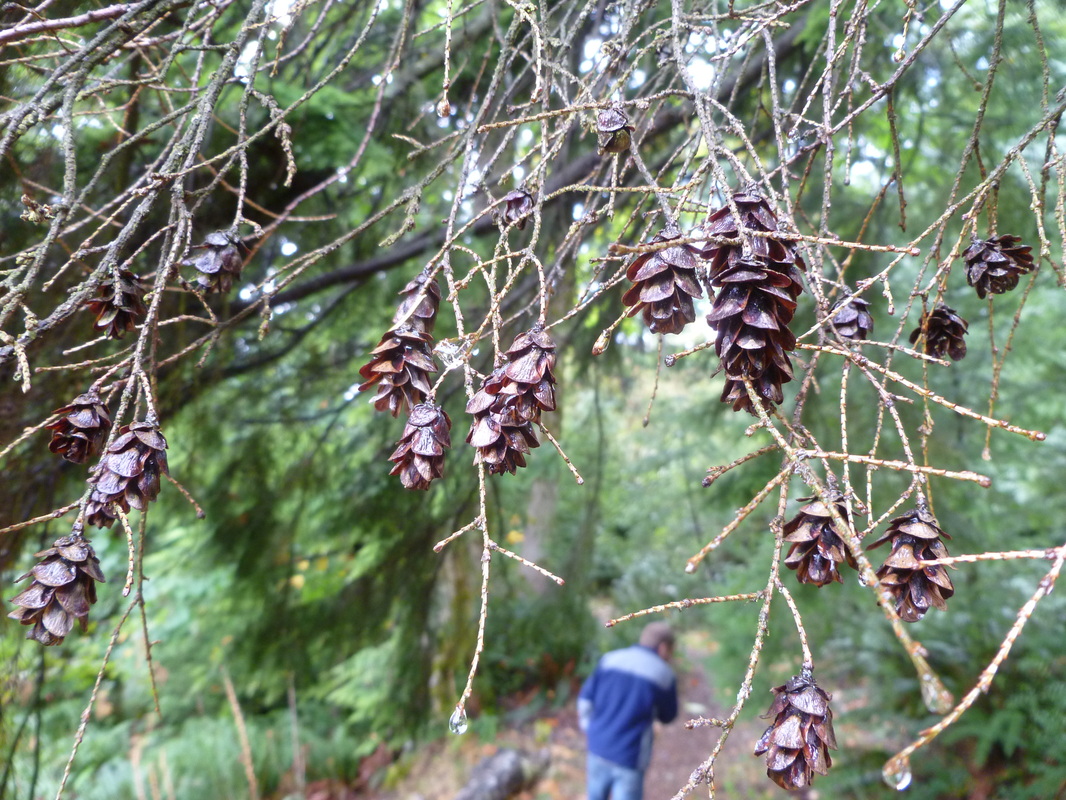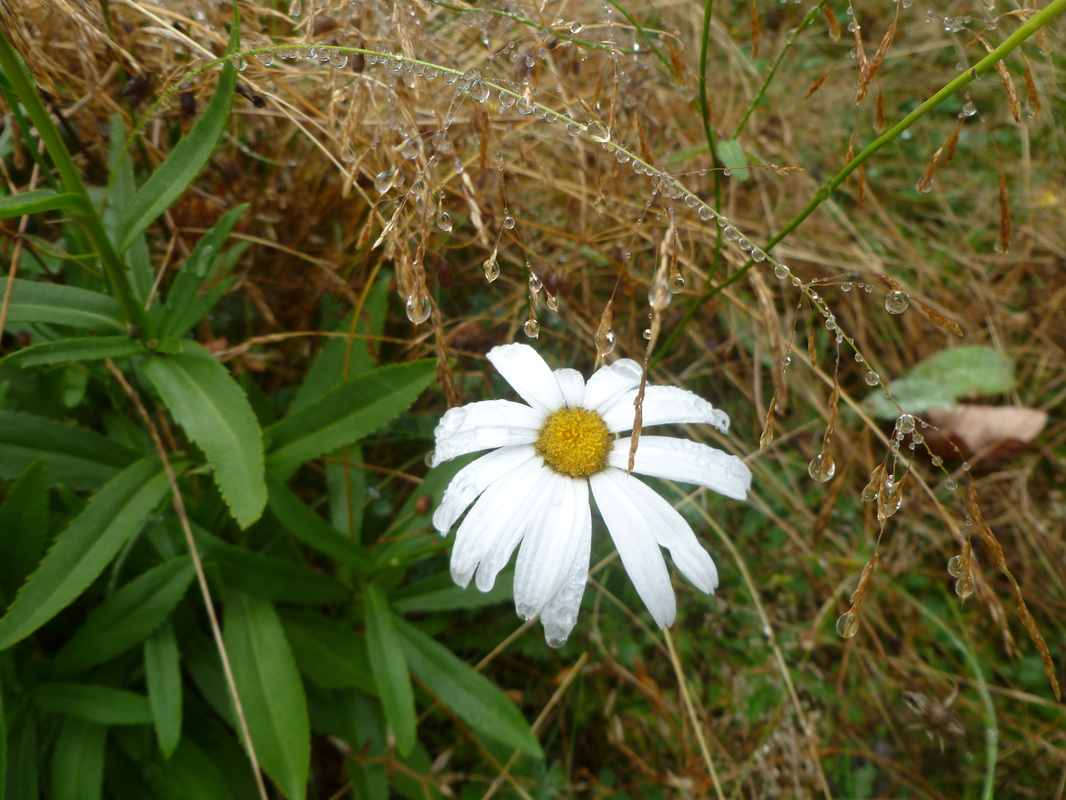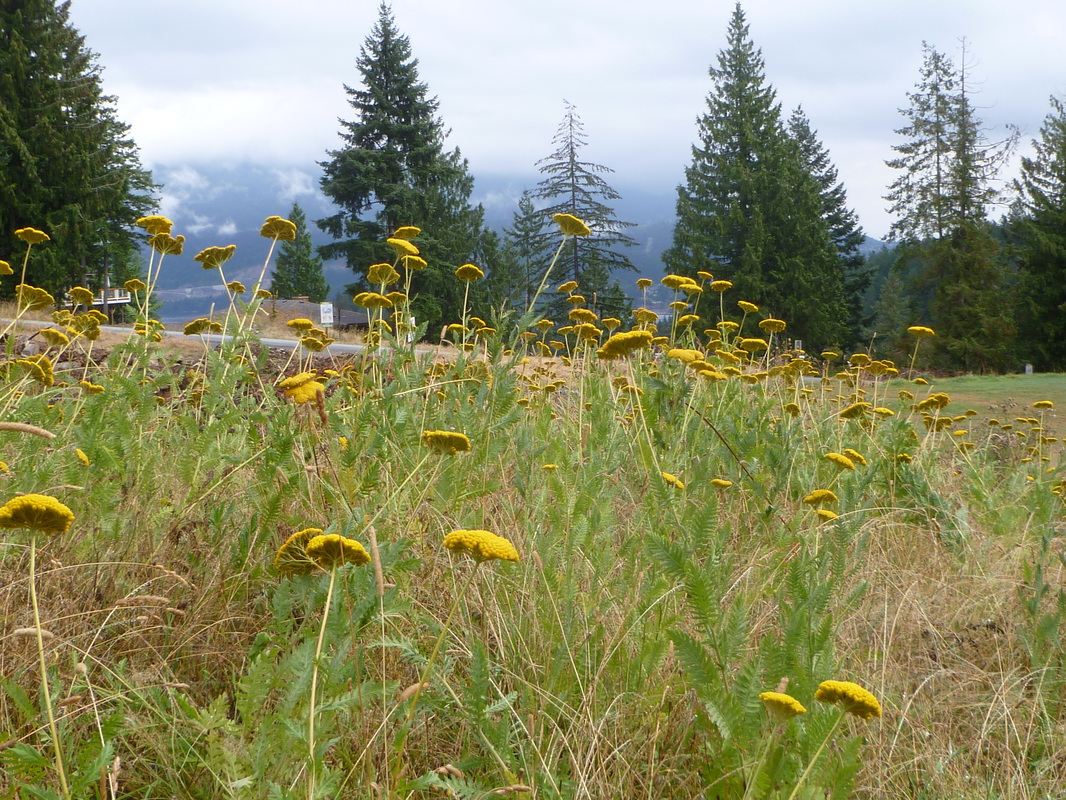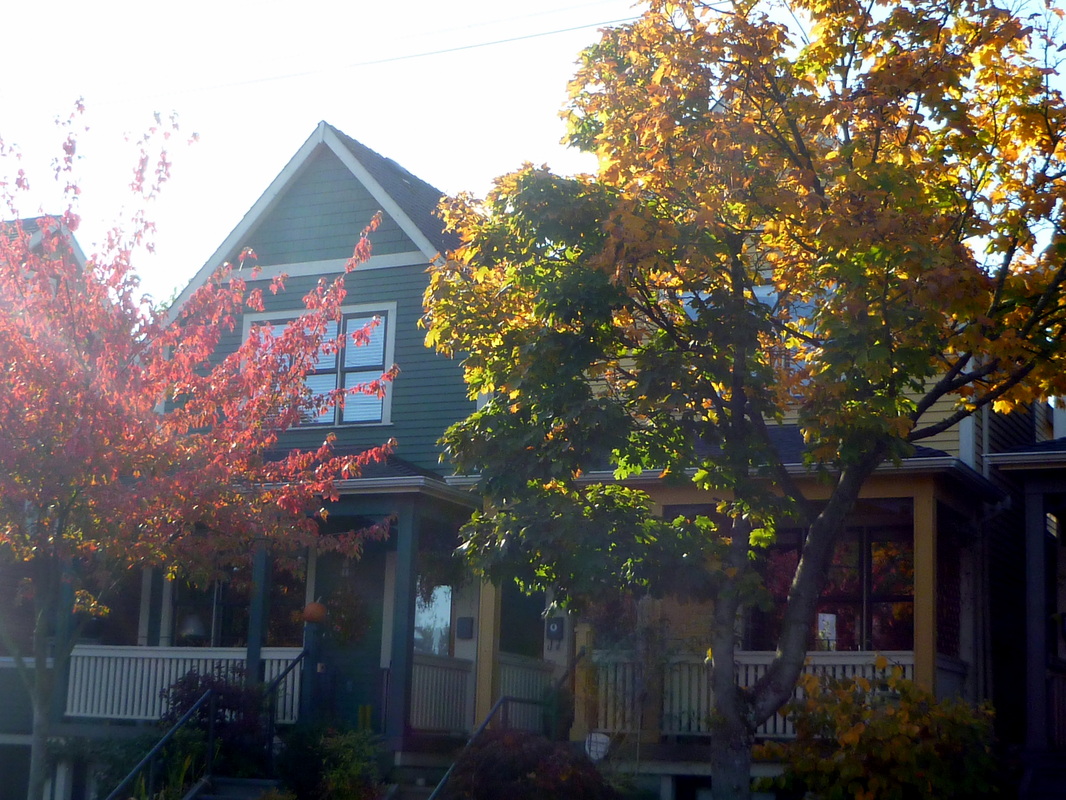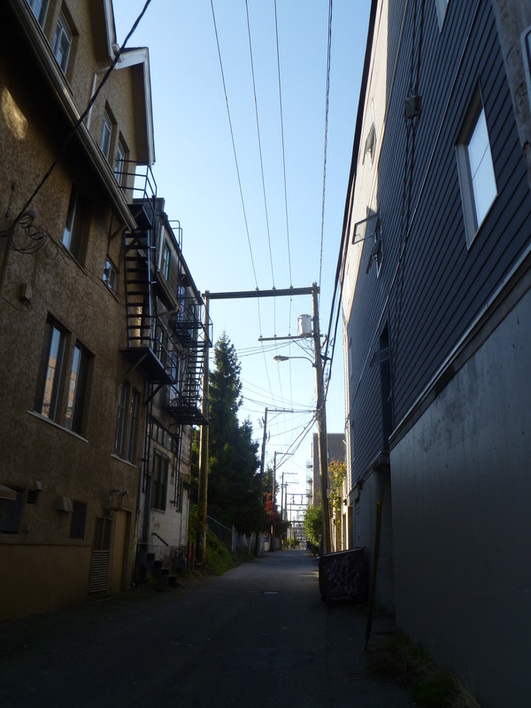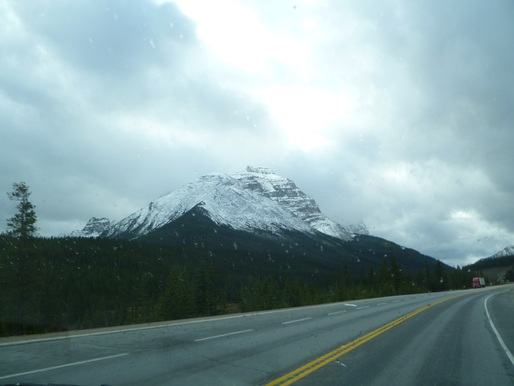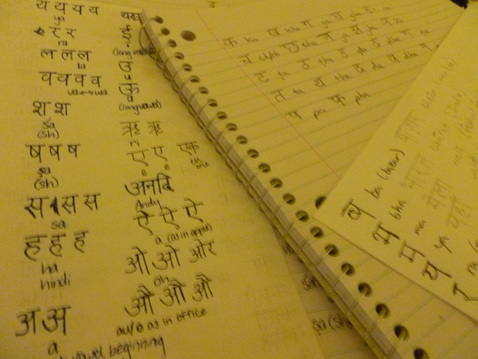The past week has been intense. Last week Andy and I started volunteering at Mother Teresa’s Home for the Destitute and Dying. The home is usually located next to Kalighat (the temple of Kali, Hindu goddess of death and patron deity of this city), but that facility is under renovation so the patients have been temporarily moved to another location, near another home for people with less serious illnesses. We were totally unprepared for it. Many of the patients there look like holocaust victims, like living skeletons. Many have gory wounds; many are mentally ill; some are missing, fingers, toes, or limbs. The first day, I was overwhelmed by the horrible condition people were in. I didn’t know where to look, and I felt awkward dressing and undressing strangers and helping them with bedpans. There’s no training—you just grab an apron and jump right in, relying on other volunteers to give you advice. People come from all over the world, so they don’t necessarily share a common language, and some of them stay for months at a time while at least one person each day is volunteering for the first time.
Neither of us was exactly sure how to do anything. I felt entirely useless and incompetent for the first two days as we struggled to learn how to accomplish the basic tasks of washing patients’ clothes in huge basins, distributing medicine, feeding and toileting people, and numerous other things. We both had some unsettling experiences. On the first day, some new patients were brought in from the street. I (Andy) was asked to help bath an older man who was brought in. He was sitting stiff as a board in a plastic chair. His head was hanging over the back of the chair. Someone else had already taken off his pants so that he was just sitting in a diaper and an old shirt. It was hard to support him as I tried to get his shirt off because he was so stiff that he couldn’t sit properly in the chair. Every time I tried to support or move his arm he would let out a muffled gasp. After we finally got him undressed, we moved him onto a ledge where he could lay as we bathed him. Before we could even start cleaning him, he stopped breathing and the Indian guy I was helping called for a Sister to come. She quickly grabbed a bottle of Holy Water and splashed it on his head, eyes, and chest. We began to pray fervently for him asking that God would have mercy on him. He took one last breath, and then his heart gradually stopped beating and he was gone. I asked if we could do CPR but the Sister said that he was too far gone, he would need a ventilator to survive. And so he died, naked in the arms of people he didn’t even know. A couple minutes after he died we began cleaning his body. It was like cleaning a skeleton with a rag. He was certainly old, but I am sure that starvation was a major contributor to his death. I prayed as I cleaned, praying for mercy. I didn’t know what else to pray. We then put him on a stretcher and put a sheet over his body. I don’t know his name or anything about him. I am honored though to have seen his face and be able to remember him in my heart, even if no one else will ever know how or where he died.
On the second day, I (Trudy) was helping to distribute medicine and ended up giving medication to the wrong person. People have beds with numbers, but they aren’t always on their beds, and the directions about who gets what are sometimes vague. I had been told to take this particular concoction to a blind woman in the corner with such-and-such a name. Well, I found the woman in the corner. She seemingly responded enthusiastically to her name, and the other details slipped out of my mind– she seemed to be tracking my approach with her eyes, but maybe she was partially blind? There was no one around to ask. As she was finishing her medication a sister walked past and exclaimed that this wasn’t the right person! A wave of numbness washed over me. What had I given her? A big scene ensued. Several of the sisters crowded around the woman, making her drink glass after glass of water either to make her throw up or to flush her system, I’m not sure which. She was making helpless, pained noises, and each of her cries fell on me like a hammer. I didn’t know what to do with myself. I felt so guilty, so stupid, so utterly angry at myself. Halfway through the morning at chai break, I was ready to jump in an autorickshaw and leave. “I can’t do this,” I told Andy. “I’m useless here.” He wisely suggested that I go and talk to the sisters. I was afraid to face them, but I did—crying and apologizing for my mistake. They were extremely comforting and gracious. “Oh, don’t cry!” said one of them, wrapping me in a bear hug. “She is alright! Humans make mistakes, it could happen to anyone.” She led me by the hand to the woman who had taken the medicine. She was back to her usual self, which I learned is a noisy state even when she isn’t in pain. I just sat on the floor with her for awhile, stroking her back and telling her how sorry I was, though I’m sure she had no idea what I was saying.
After that, things got better. Andy and I both adjusted to being at Kalighat. It became easier for us to center ourselves on prayer and to interact with the patients as normal people. I opted out of more technical tasks in favor of just sitting and praying with the women, massaging their shoulders and their hands and their atrophying legs, and singing to them. We both began to recognize Jesus in the faces of the feeble people around us, and He spoke to us about His own helplessness and poverty on the cross. The way that we needed to humbly submit to these weaker neighbors in order to care for their basic needs called to mind the way that Jesus submitted to us by lowering himself from the position of powerful Creator to powerless creature, and by even submitting to a painful, scary, shameful death at the hands of humans he could have wrathfully obliterated in an instant.
We also learned about the powerlessness that Jesus subjected himself to. We love to be competent, to have control, to have something to DO in order to solve problems or to fix things. But over and over again, we have been faced with incredible pain and we have no idea what to do. We have a huge language barrier, we have no experience with caring for the elderly or for people who are dying, and it is often difficult to be faced with so much pain and to realize that there is no way to “fix” most of them; we can only help them to die well. The juxtaposition of hideous and disgusting physical realities with beautiful and lofty spiritual realities also illuminated for us the paradox of compassion. Everyone admires the beautiful compassion that Mother Teresa personified, but we rarely picture her doing the dirty work of scrubbing poop out of dirty clothes, cleaning bedpans, or hand-feeding rice and lentils to toothless grandmothers. Those are precisely the things that the Missionaries of Charity are doing every day! And it is the accumulation of all of those small, mundane, and even distasteful tasks that creates a life of beautiful, selfless love.
No one was miraculously healed, but even in that dimly-lit, primitive ward, we experienced the Kingdom of God as it crashed down to earth. Widows and orphans and throwaway, forgotten, neglected, social outcasts were cared for and respected and their well-being was prioritized above all else. Life is truly in that place.
And then the other thing happened. It is a half hour walk from Mother House, the MC convent, to the place where we volunteer. Most of that walk is along narrow alleys and side streets filled with pedestrian, rickshaw, and auto traffic, and the in the final stretch we cross a set of railroad tracks and walk alongside them to one of the local train stations. Day before yesterday, there was a group of people from YWAM with us, and it was their first day to volunteer. As we walked along the sidewalk beside the tracks, we came to a place where a stairway takes up most of the sidewalk and leaves only a narrow space between piles of trash on one side and the train tracks on the other. Andy and I were walking next to each other, and as the horn of an approaching train blared, Andy hurried the two of us through that little bottleneck. Since we had seen how all of the locals continued to walk casually alongside the tracks as trains approached, we didn’t think that the sidewalk could actually be that dangerous but we just felt uncomfortable cutting it quite that close. At this point, our group was spread out along the length of the platform and there were more volunteers walking further behind us. As the train whizzed past, I was surprised to notice how close the train does come to the sidewalk—the trains here are much wider than they are in China. Andy turned around just in time to see someone caught by the side of the train, and to watch as their body was whipped around to the front of the train and dropped onto the tracks. Facing forward, I saw a white leg bumping along the tracks underneath the front of the train and had the sickening realization that there was a human body being crushed underneath the wheels. We froze in shock for a moment, then we were sprinting down the platform at least fifty yards, to where the train finally came to a stop. I was praying out loud over and over again, hardly even able to think, “Lord have mercy! Lord have mercy! Lord have mercy!” We saw a crumpled body underneath the train and were shocked again to see a hand raising up weakly and then dropping again. I couldn’t believe this person had survived, and I was horrified to think that they had endured the whole ordeal with full consciousness and were now going to die slowly on the tracks. Right away Andy rushed toward the train and disappeared from view as I was enveloped in a surging crowd of Indians. I was slowly realizing that the person under the train was one of the volunteers. His teammates were hysterical, yelling and crying, and I was feverishly praying out loud and crying shocked tears, too. An Italian doctor who had been volunteering with us also jumped down to the train to help.
Down on the tracks, Andy struggled to quiet the yelling crowd enough to communicate to the guy under the train. “Where can you move? Should we pull you out from the front or from the side?” The nineteen-year-old tried to move his leg and cried out in pain. Andy could see the end of his cracked bone sticking out of his thigh. The driver mercifully spoke English, and they were able to get him to move the train a little bit to get it off of the guy’s leg. Then an Indian man pulled him out from the front of the train, and Andy helped to carry him back up to the sidewalk. He cringed to have to lay him down in the filthy mud, but there was nowhere else to put him.
Separated from the others and unable to see Andy over the heads of the yelling mob that had formed on both sides of the tracks, I was worried about where he was. When I saw them moving the train, I was just praying that he wasn’t underneath it. I was relieved to see him back on the platform, and I pushed my way over to the crowd of volunteers to help literally shove the surging crowd backwards and make an open space around David. Though the train had ripped the shirt off of his body, his head and torso looked remarkably unscathed. There was blood but no deep cuts anywhere I could see. The Italian doctor made a tourniquet out of someone’s shirt and started to stem the bleeding. Andy yelled for someone to go get a sister, and I sprinted down the rest of the platform and into Kalighat, yelling for help. By the time I came back with the nuns, a stretcher had already been sent ahead of us to carry the guy to a three-wheeled cart where he was pushed to the nearest hospital for treatment. Andy was nowhere to be found, so another volunteer and I enlisted the help of one of the Indian men in the crowd to take us in the direction of the hospital. On the way, we ran into Andy who was coming back from putting the guy in the cart. The three of us returned to Kalighat and prayed together on a bench. As we were sitting there, staring ahead, one of the men in the ward who had lost an arm in a train accident a month before came over and explained by signs that the same thing had happened to him, and he expressed his empathy for the young guy who had been hit and his sympathy for us. There were hardly any volunteers left in the ward, and we realized that the whole place was full of people like this man—broken bodies and broken spirits in need of care, each of whom had experienced tragedy similar to what we had just witnessed. We decided to stay on for our usual morning shift, and we set about washing clothes and feeding patients as usual. The frequent sound of passing trains eerily replayed the scene from earlier again and again in our minds, but it was good to have work to do.
After we finished, Andy and I took a shoe and some headphones that had been left on the tracks to the leader of the YWAM team. We found out from him that the guy’s right leg had been amputated and that he was in critical condition and currently having scans of his brain and internal organs done. Since then we have heard that his brain scan has come back clear, and he has been transferred from the very primitive government hospital where he was originally taken to a better one. Please continue to pray for him, that his body would be safe from infection, and for God to help him psychologically and emotionally as he comes to terms with the loss of his leg and begins the long process of recovery.
Kolkata has been called the City of Joy, and at times it is difficult to see why. This is a place that is full of life and of death, coexisting alongside each other in frightening proximity and striking contrast. There is the energy of the people, the traffic, the conversations; the brightly printed saris, the brightly painted houses, the locals’ love of art and music and politics and poetry. And then there is the terrible poverty, the naked children on the street, the rats running along the road or smashed on the pavement; there is the hopeless, haunted look in the eyes of the starving. And yet… at Kalighat and in this young man’s life, we see also the mercy of God and His miraculous intervention. We see His joy subverting the hopelessness against all odds, and we have to believe that even here, there is a glimmer of the joy that is to come.
Source: New feed
